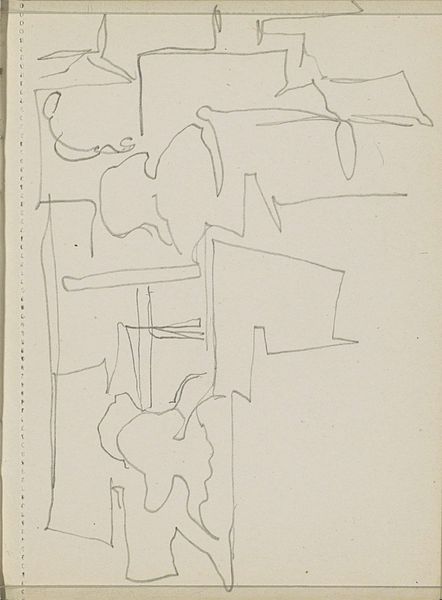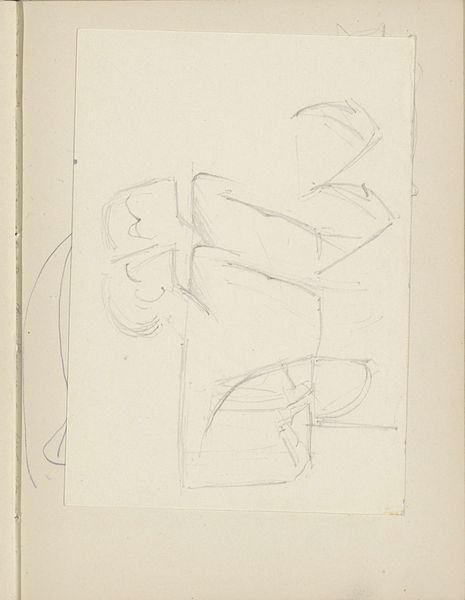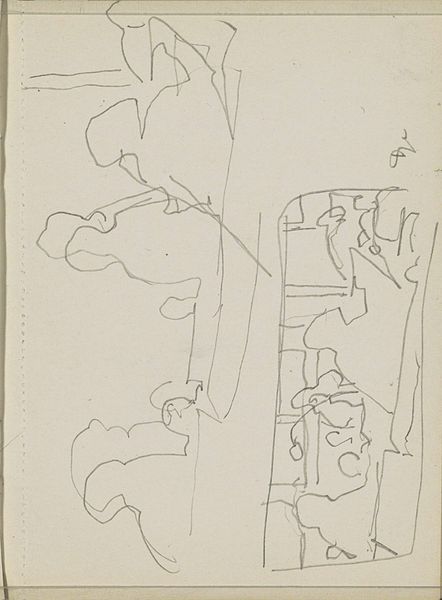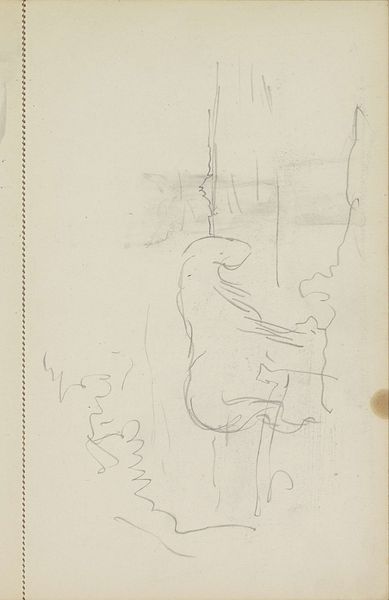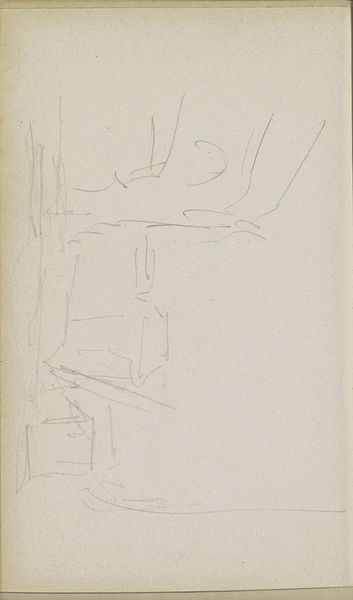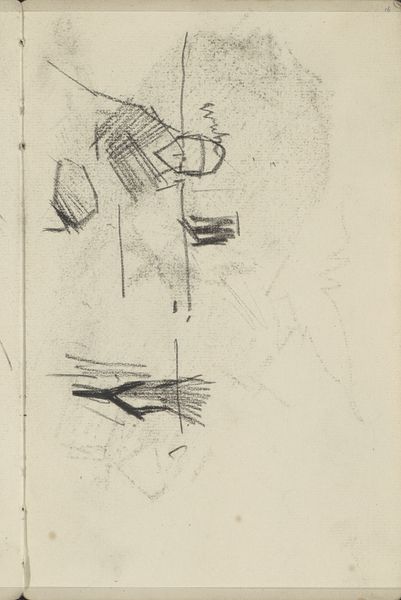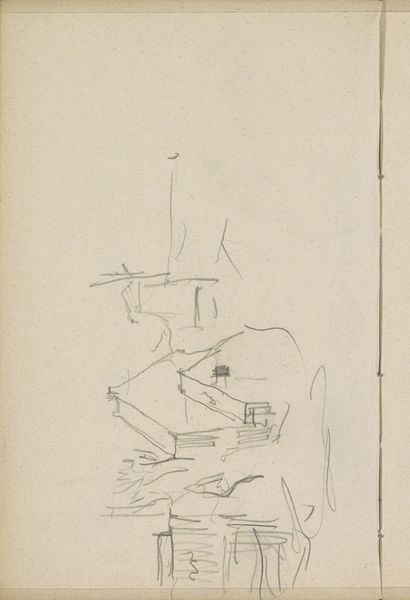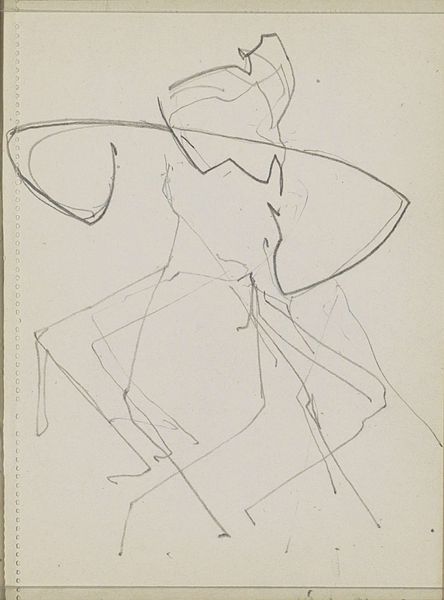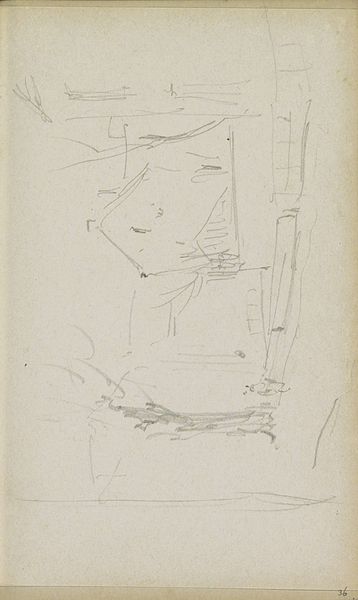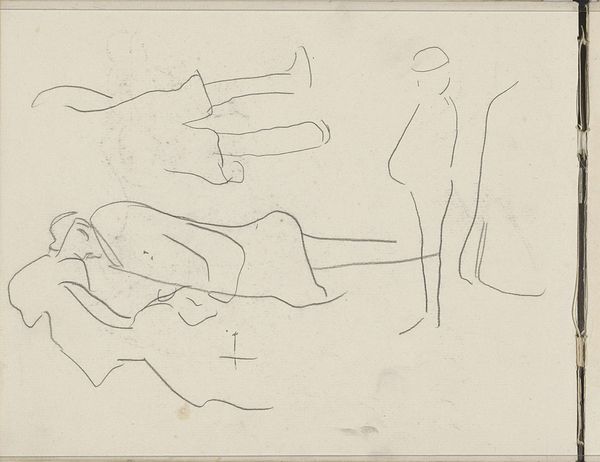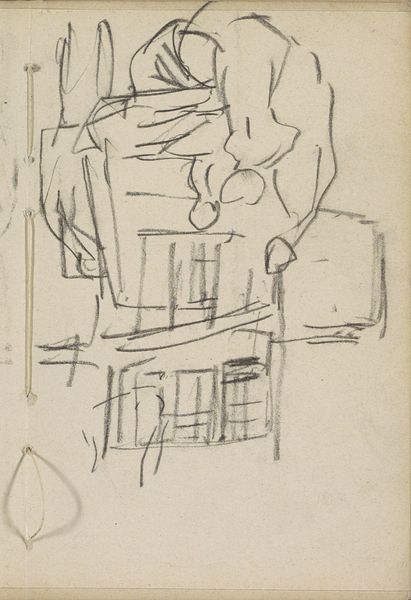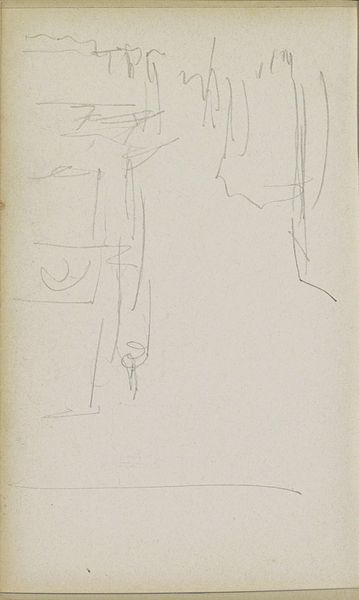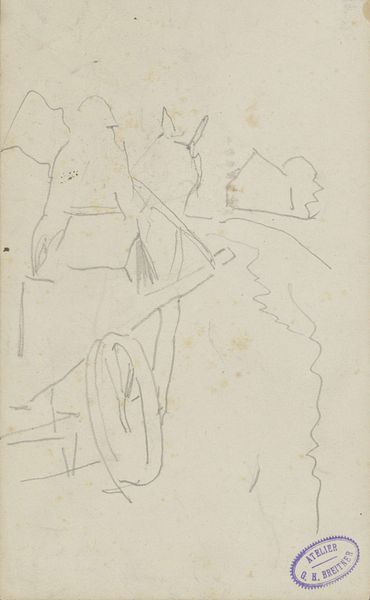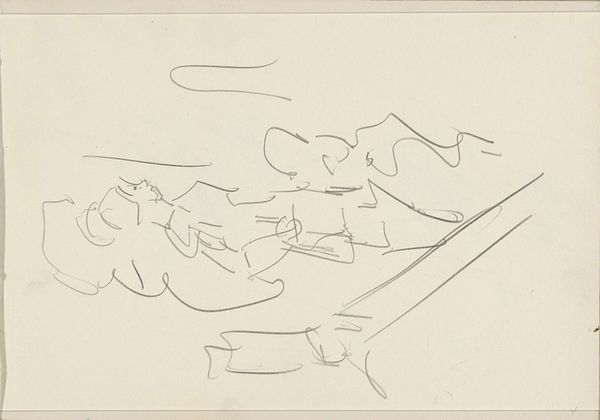
drawing, paper, pencil
#
drawing
#
amateur sketch
#
light pencil work
#
incomplete sketchy
#
hand drawn type
#
figuration
#
paper
#
personal sketchbook
#
idea generation sketch
#
ink drawing experimentation
#
intimism
#
sketch
#
pencil
#
line
#
sketchbook drawing
#
sketchbook art
#
initial sketch
Copyright: Rijks Museum: Open Domain
Curator: This pencil drawing, whose title translates to "Figures in the Interior of a Cafe or Restaurant," comes to us from sometime between 1906 and 1945. Its author is currently unknown, and it’s part of the Rijksmuseum’s collection. What do you see in it? Editor: I’m immediately struck by its fragility, its incompleteness. It’s almost a ghost of a scene. There's something poignant in these tentative lines, a feeling of fleeting observation. Curator: It is indeed an ephemeral sketch. Looking at it through a lens of social history, I’m interested in what this interior represents, especially if the sketch dates closer to the later end of that time frame, potentially alluding to anxieties around public spaces in a time of unrest and the slow undoing of tradition. The act of observing and recording these everyday spaces—spaces perhaps undergoing significant shifts in their cultural meaning—becomes significant. Editor: That's a very interesting perspective. For me, the lines evoke more universal symbols related to public life; you have upright architectural motifs interspersed with round head-like shapes, signifying individuals, thus evoking a scene filled with individual intellects engaging in upright endeavors. Is this an artistic attempt to showcase and immortalize culture as it thrives in real-time? Curator: The symbolism could potentially stretch toward more literal representations; what are your thoughts on gender or social standing, given these abstracted figures? Are there visual clues within the work that can be decoded to glean hints about identity? Editor: While there isn't much in terms of distinguishing features to point toward differences based on social gender and race, that limitation allows us to explore its potential as a pure archetypal depiction of society in all its basic manifestations. In viewing this work, we begin to appreciate that beneath the complexity that stratifies people lies an innate basic state of belonging and an immutable desire to be engaged. Curator: A universal and compelling concept! I think I will now view such art pieces with renewed awe as both artifacts and cultural blueprints—revealing fundamental truths, all in the space of what amounts to simple lines. Editor: Indeed. We all yearn to unearth underlying universal human stories that bind everyone and art will perpetually hold such subtle truths.
Comments
No comments
Be the first to comment and join the conversation on the ultimate creative platform.
